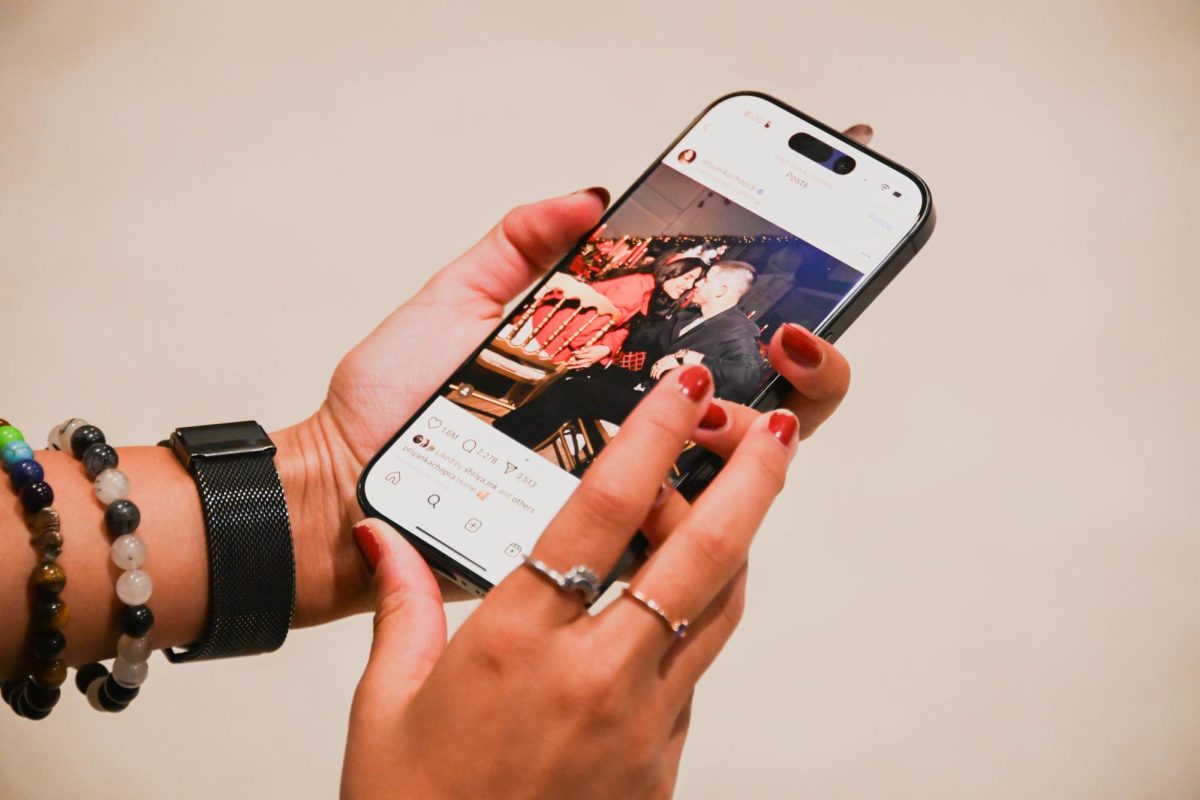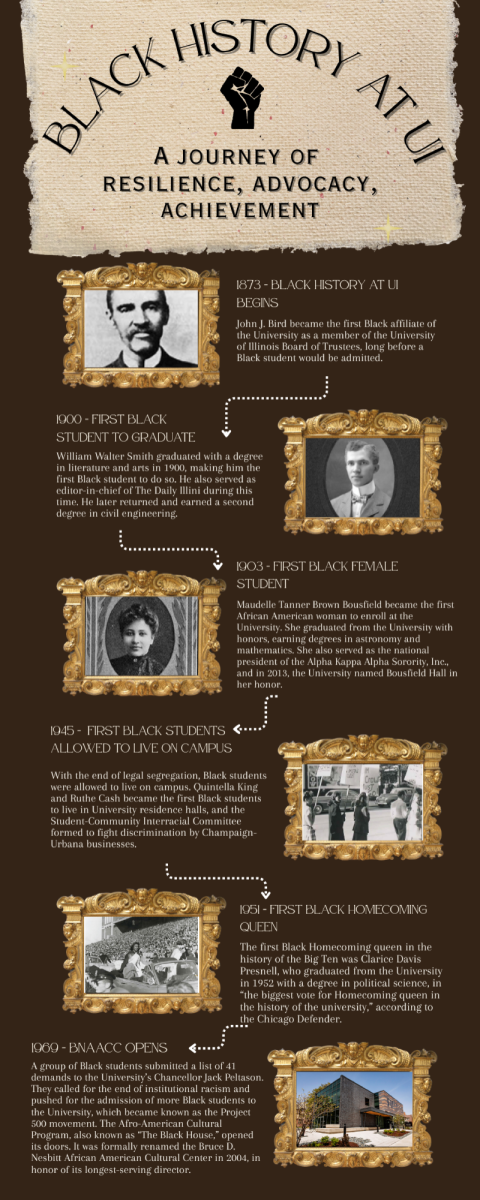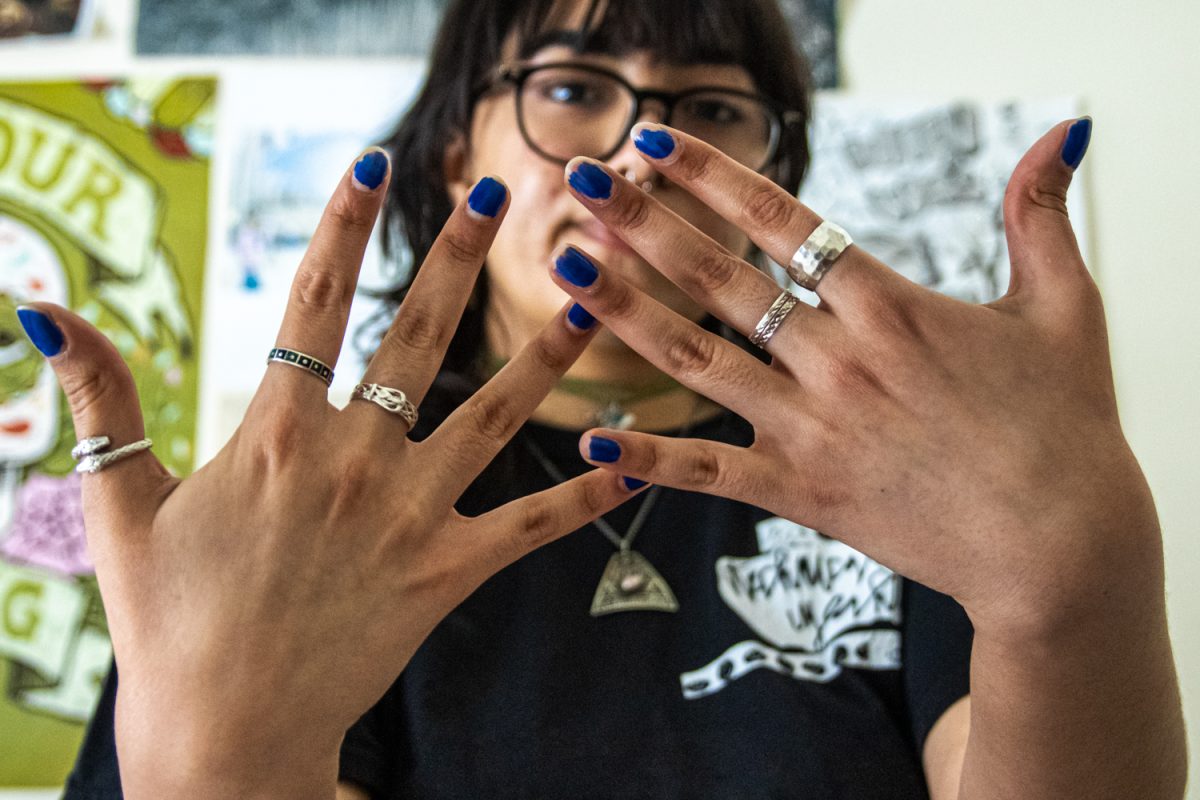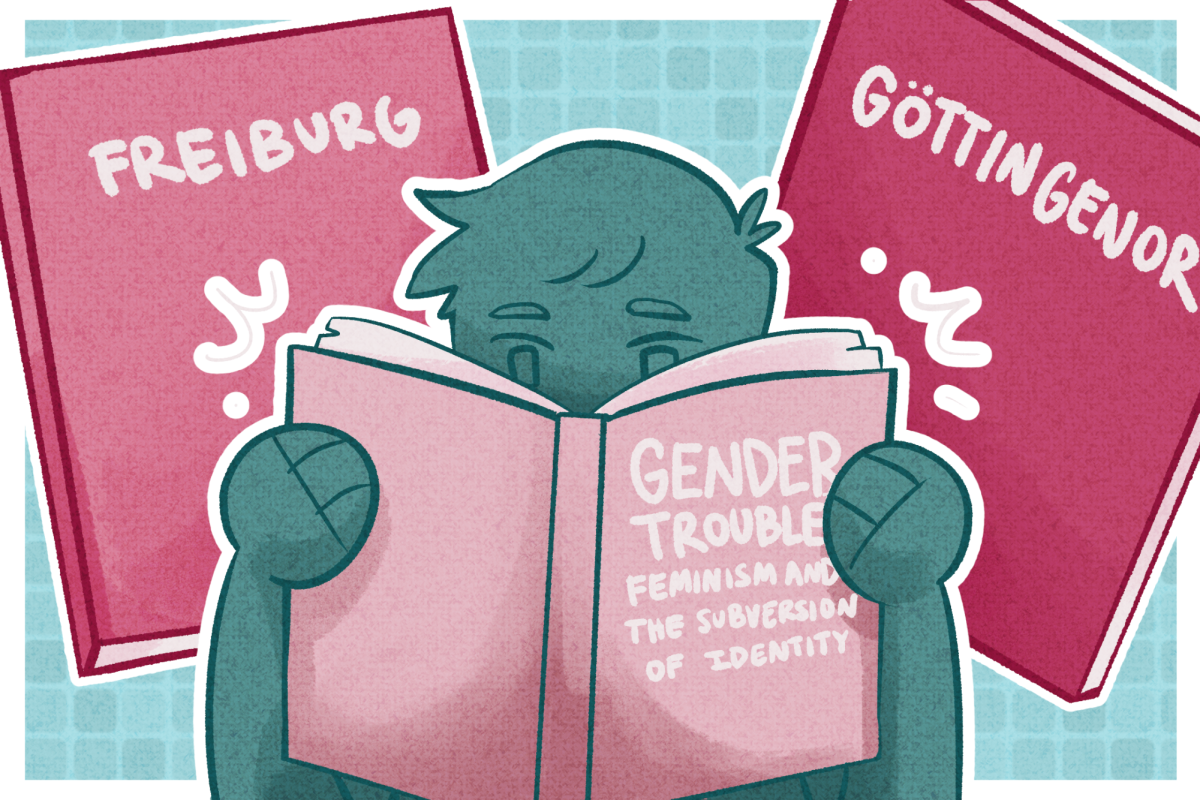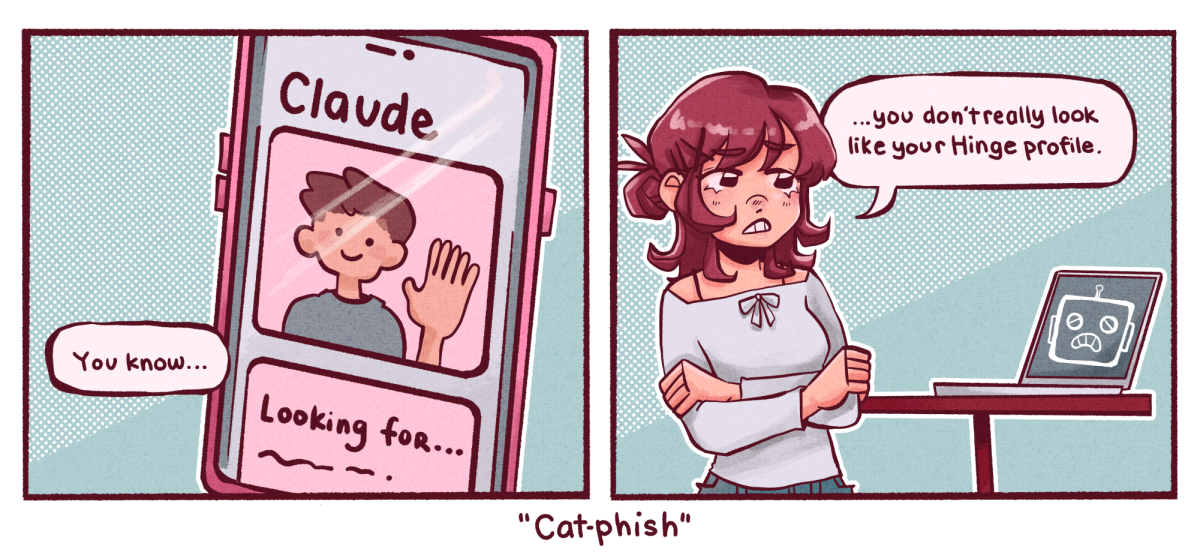As if college relationships couldn’t be more complicated, social media adds an extra layer to the problems students face while searching for love. Inauthenticity, distortion of reality and unhealthy boundaries are some issues social media can exaggerate in college students’ romantic relationships.
Attending a school with over 35,000 undergraduates may make it overwhelming for students to meet others in person, but social media allows them to connect with their peers.
Marisa Peacock, professor in Media, believes using social media to discover romance is just another tool and should not be stigmatized.
“You find the person you want to be with, however you find that person,” Peacock said. “There are no right or wrong answers.”
Despite meeting her partner of 17 years through Facebook, Peacock still recognizes that social media introduces new complications to finding romance.
Get The Daily Illini in your inbox!
A survey by Pew Research Center reports that social media is the top reason parents believe it is harder to be a teenager now than 20 years ago. They accredit social media with creating idealized lives that make teenagers insecure about their own experiences.
On “Moments Podcast,” social media influencer Lexi Hidalgo spoke about her experience on social media as both a consumer and an influencer.
“It is hard to say this without sounding hypocritical, but somehow, we need to take a step back from social media and the superficial view of a perfect life,” Hidalgo said. “I love this concept, and I love to share my highlights throughout my life, but what we need to remember is that behind the screen, my life is so not perfect.”
Social media is one of the vessels that influence how people perceive the world. When people choose what to post on their social media, they create a certain narrative surrounding their life — with varying levels of authenticity.
“We put on social media what we want people to see,” Peacock said. “We don’t put the s—ty stuff necessarily, and as a result, it warps our perception of what reality is. If we only see people telling us the amazing things that they do, well, then we’re going to think that everything they do is amazing … It distorts our reality of what is normal.”
While Peacock acknowledged the difficulties that social media brings, she also pointed out that creating relationships was complicated before its introduction. It only enhances the complexity of forming relationships by creating unrealistic standards.
While Campbell Coker, senior in FAA, acknowledged that social media creates unrealistic expectations for students, it also brings a platform to share and celebrate different identities.
“Anyone who is not comfortable with their sexuality can find ‘ideal’ heterosexual couples online and wish to be like them,” Coker said in an email interview. “However, I honestly think social media has made gay couples more visible, making them more acceptable in society. As someone who grew up in a smaller midwestern town, I didn’t have LGBTQ+ couples to look up to, but with social media, I have found them.”
However, a lot of popular media pushes certain norms and traditions that can be harmful to students not conforming to them.
“As a queer woman, I see a lot of discourse about the speed of which lesbian couples move,” Coker said. “There is the term ‘U-Haul lesbians’ meaning women are wanting to move in together and be official quickly after meeting.”
Numerous opinions circulate on social media about this stereotype, making it difficult for women to figure out their stances on relationship pace.
“Sometimes it makes it hard to trust the pace of my own relationships because of the opinions on everyone online,” Coker said. “Thankfully I am in a healthy relationship now and have no doubts, but that doesn’t mean I haven’t struggled a little.”
Peacock also mentioned the dangers of trends like the “tradwife,” which romanticizes traditional gender roles in familial and romantic relationships.
“It doesn’t show every second of the day,” Peacock said. “It doesn’t show the labor-intensive; it just shows the nice image afterward.”
The tradwife trend gives social media users a skewed view of a traditional lifestyle, making it hard for college students to discern the romanticized lifestyle from reality.
Even after a relationship is formed, using social media while in a relationship brings up a whole slew of complications.
For starters, when students enter relationships, is it appropriate to “hard launch” their relationships? Is it better to complete a more mysterious “soft launch?” Do people delete pictures of their exes? How much should you track your partner’s social media usage and presence?
There is always a delicate balance between sharing your authentic life on social media while maintaining your privacy, and it becomes even more difficult with relationships.
Social media can also worsen unhealthy boundaries between romantic partners. Several social media platforms enable students to track their partners’ locations, watch their ‘Snapcore’ rise as they send Snapchats, stalk Instagram followers and much more.
“When my partner doesn’t want to share their location, it gives me pause,” Coker said. “Are they going somewhere they shouldn’t? Are they doing something I wouldn’t like? But I think it’s important to remind myself that trust is important in a relationship. Just because they want the privacy of their location does not mean they are doing something wrong.”
While unhealthy relationship boundaries have always existed, social media makes it easier to obsess over and try to control minute aspects of a romantic partner’s life.
“These are not social media problems,” Peacock said. “These are relationship issues that can be exacerbated by social media.”
It can be hard for college students seeking relationships to avoid the stress of social media or navigate romantic relationships without social media. According to Pew Research Center, nearly half of teens reported being online almost constantly. This statistic has increased by 24% in just a decade.
Despite the growing usage of social media, it is important to remember how unrealistic it can be and its exacerbation of existing boundary issues.
“I think, with the influence of so many couples on social media, there is a desire to be like them, but it’s important to remember that every relationship is different,” Coker said.



